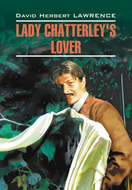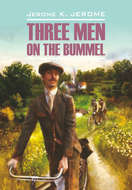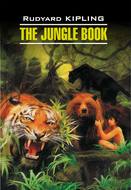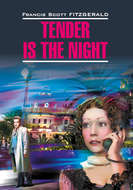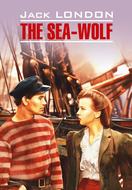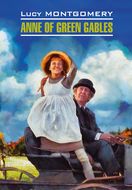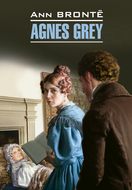Kitabı oku: «Just So Stories for Little Children / Просто сказки. Книга для чтения на английском языке», sayfa 2
Questions and tasks
1. Describe how Rhinoceros looked like formerly? How did he manage to do this? 2. What did the Parsee do when he found the Rhinoceros’ skin?
3. Describe a ‘modern’ Rhinoceros.
4. How did the Rhinoceros get his skin?
5. Retell the story.
How the Leopard Got His Spots
In the days when everybody started fair, Best Beloved, the Leopard lived in a place called the High Veldt. ’Member62 it wasn’t the Low Veldt, or the Bush Veldt, or the Sour Veldt, but the ’sclusively63 bare, hot, shiny High Veldt, where there was sand and sandy-coloured rock and ’sclusively tufts of sandy-yellowish grass. The Giraffe and the Zebra and the Eland and the Koodoo and the Hartebeest64 lived there; and they were ’sclusively sandy-yellow-brownish all over; but the Leopard, he was the ’sclusivest sandiest-yellowest-brownest of them all – a grayish-yellowish catty-shaped kind of beast, and he matched the ’sclusively yellowish-greyish-brownish colour of the High Veldt to one hair. This was very bad for the Giraffe and the Zebra and the rest of them; for he would lie down by a ’sclusively yellowish-greyish-brownish stone or clump of grass, and when the Giraffe or the Zebra or the Eland or the Koodoo or the Bush-Buck or the Bonte-Buck came by he would surprise them out of their jumpsome lives. He would indeed! And, also, there was an Ethiopian with bows and arrows (a ’sclusively greyish-brownish-yellowish man he was then), who lived on the High Veldt with the Leopard; and the two used to hunt together – the Ethiopian with his bows and arrows, and the Leopard ’sclusively with his teeth and claws – till the Giraffe and the Eland and the Koodoo and the Quagga and all the rest of them didn’t know which way to jump, Best Beloved. They didn’t indeed!
After a long time – things lived for ever so long in those days – they learned to avoid65 anything that looked like a Leopard or an Ethiopian; and bit by bit66 – the Giraffe began it, because his legs were the longest – they went away from the High Veldt. They scuttled for days and days and days till they came to a great forest, ’sclusively full trees and bushes and stripy, speckly, patchy-blatchy shadows, and there they hid: and after another long time, what with standing half in the shade and half out of it, and what with the slippery-slidy shadows of the trees falling on them, the Giraffe grew blotchy, and the Zebra grew stripy, and the Eland and the Koodoo grew darker67, with little wavy grey lines on their backs like bark on a tree-trunk; and so, though you could hear them and smell them, you could very seldom see them, and then only when you knew precisely where to look. They had a beautiful time in the ’sclusively speckly-spickly shadows of the forest, while the Leopard and the Ethiopian ran about over the ’sclusively grayish-yellowish-reddish High Veldt outside, wondering where all their breakfasts and their dinners and their teas had gone. At last they were so hungry that they ate rats and beetles and rock-rabbits, the Leopard and the Ethiopian, and then they had the Big Tummy-ache68, both together; and then they met Baviaan – the dog-headed, barking Baboon who is Quite the Wisest Animal in All South Africa.
Said the Leopard to Baviaan (and it was a very hot day), ‘Where has all the game gone?’
And Baviaan winked69. He knew.
Said the Ethiopian to Baviaan, ‘Can you tell me the present habitat of the aboriginal70 Fauna?’ (That meant just the same thing, but the Ethiopian always used long words. He was a grown-up.)
And Baviaan winked. He knew.
Then said Baviaan, ‘The game has gone into other spots71; and my advice to you, Leopard, is to go into other spots as soon as you can.’
And the Ethiopian said, ‘That is all very fine, but I wish to know whither the aboriginal Fauna has migrated.’
Then said Baviaan, ‘The aboriginal Fauna has joined the aboriginal Flora because it was high time for a change72; and my advice to you, Ethiopian, is to change as soon as you can.’
That puzzled the Leopard and the Ethiopian, but they set off to look for the aboriginal Flora, and presently, after ever so many days, they saw a great, high, tall forest full of tree-trunks all ’sclusively speckled and spotted and spotted, dotted and splashed and slashed and hatched and cross-hatched with shadows. (Say that quickly aloud, and you will see how very shadowy the forest must have been.)
‘What is this,’ said the Leopard, ‘that is so ’sclusively dark, and yet so full of little pieces of light?’
‘I don’t know,’ said the Ethiopian, ‘but it ought to be the aboriginal Flora. I can smell Giraffe, and I can hear Giraffe, but I can’t see Giraffe.’
‘That’s curious,’ said the Leopard. ‘I suppose it is because we have just come in out of the sunshine75. I can smell Zebra, and I can hear Zebra, but I can’t see Zebra.’
This is Wise Baviaan, the dog-headed Baboon, who is Quite the Wisest Animal in All South Africa.
I have drawn him from statue that I made up out of my own head, and I have written his name on his belt and on his shoulder and on the thing he is sitting on. I have written it in what is not called Coptic and Hieroglyphic and Cuneiformic and Bengalic and Burmic and Herbraic73, all because he is so wise. He is not beautiful, but he is very wise, and I should like74 to paint him with paint-box colours, but I am not allowed. The umbrella-ish thing about his head is his Conventional Mane.

‘Wait a bit’, said the Ethiopian. ‘It’s a long time since we’ve hunted76 ’em77. Perhaps we’ve forgotten what they were like.’
‘Fiddle!78’ said the Leopard. “I remember them perfectly on the High Veldt, especially their marrow-bones79. Giraffe is about seventeen feet high, of ’sclusively fulvous golden-yellow from head to heel; and Zebra is about four and a half feet high, of a ’sclusively grey-fawn colour from head to heel.
‘Umm,’ said the Ethiopian, looking into the speckly-spickly shadows of the aboriginal Flora-forest. ‘Then they ought to show up in this dark place like ripe bananas in a smoke-house.’
But they didn’t. The Leopard and the Ethiopian hunted all day; and though they could smell them and hear them, they never saw one of them80.
‘For goodness sake81,’ said the Leopard at teatime, ‘let us wait till it gets dark82. This daylight hunting is a perfect scandal.’
So they waited till dark, and then the Leopard heard something breathing sniffily in the starlight that fell all stripy through the branches, and he jumped at the noise, and it smelt like Zebra, and it felt like Zebra, and when he knocked it down it kicked like Zebra, but he couldn’t see it. So he said, ‘Be quite, O you person without any form. I am going to sit on your head till morning, because there is something about you that I don’t understand.’
Presently he heard a grunt and a crash and a scramble, and the Ethiopian called out, ‘I’ve caught a thing that I can’t see. It smells like Giraffe, and it kicks like Giraffe, but it hasn’t any form.’
‘Don’t you trust it,’ said the Leopard. ‘Sit on its head till the morning – same as me. They haven’t any form – any of ’em.’
So they sat down on them hard till bright morning-time, and then Leopard said, ‘What have you at your end of the table, Brother?’
The Ethiopian scratched his head83 and said, ‘It ought to be ’sclusively a rich fulvous orange-tawny from head to heel84, and it ought to be Giraffe; but it is covered all over with chestnut blotches. What have you at your end of the table, Brother?’
And the Leopard scratched his head and said, ‘It ought to be ’sclusively a delicate grayish-fawn, and it ought to be Zebra; but it is covered all over with black and purple stripes. What in the world have you been doing to yourself, Zebra? Don’t you know that if you were on the High Veldt I could see you ten miles off? You haven’t any form.’
‘Yes,’ said the Zebra, ‘but this isn’t the High Veldt. Can’t you see?’
‘I can now,’ said the Leopard. ‘But I couldn’t all yesterday. How is it done?’
‘Let us up,’ said the Zebra, ‘and we will show you.’
They let the Zebra and the Giraffe get up; and Zebra moved away to some little thorn-bushes where the sunlight fell all stripy, and Giraffe moved off to some tallish trees where the shadows fell all blotchy.
‘Now watch,’ said the Zebra and the Giraffe. ‘This is the way it’s done. One – two – three! And where’s your breakfast?’
Leopard stared, and Ethiopian stared, but all they could see were stripy shadows and blotched shadows in the forest, but never a sign of Zebra and Giraffe. They had just walked off and hidden themselves in the shadowy forest.
‘Hi! Hi!’ said the Ethiopian. ‘That’s a trick worth learning85. Take a lesson by it, Leopard. You show up in this dark place like a bar of soap in a coal scuttle.’
‘Ho! Ho!’ said the Leopard. ‘Would it surprise you very much to know that you show up in this dark place like a mustard-plaster on a sack of coals?
‘Well, calling names won’t catch dinner,’ said the Ethiopian. ‘The long and the little of it is that we don’t match our backgrounds. I’m going to take Baviaan’s advice. He told me I ought to change; and as I’ve nothing to change except my skin I’m going to change that.’
‘What to?’ said the Leopard, tremendously excited.
‘To a nice working blackish-brownish colour, with a little purple in it, and touches of slaty-blue.
It will be the very thing for hiding in hollows and behind trees86.’
So he changed his skin then and there, and the Leopard was more excited than ever; he had never seen a man change his skin before.
‘But what about me?’ he said, when the
Ethiopian had worked his last little finger into his fine new black skin.
‘You take Baviaan’s advice too. He told you to go into spots.’
‘So I did,’ said the Leopard. ‘I went into other spots as fast as I could. I went into this spot with you, and a lot of good it has done to me.’
‘Oh,’ said the Ethiopian, ‘Baviaan didn’t mean spots in South Africa. He meant spots on your skin.’
‘What’s the use of that?’ said the Leopard.
‘Think of Giraffe,’ said the Ethiopian. ‘Or if you prefer stripes give them perfect satisfaction87.’
‘Umm,’ said the Leopard. ‘I wouldn’t look like Zebra – not for ever so.’
‘Well, make up your mind88,’ said the Ethiopian, ‘because I’d hate to go hunting without you, but I must if you insist on looking like a sunflower against a tarred fence.’
‘I’ll take spots, then,’ said the Leopard; ‘but don’t make ’em too vulgar-big. I wouldn’t look like Giraffe – not for ever so.’
This is the picture of the Leopard and the Ethiopian after they had taken Wise Baviaan’s advice and the Leopard had gone into other spots and the Ethiopian had changed his skin. The Ethiopian was really a negro, and so his name was Sambo. The Leopard was called Spots, and he has been called Spots ever since. They are out hunting in the spickly-speckly forest, and they are looking for Mr. One-Two-Three-Where’s-your-Breakfast. If you look a little you will see Mr. One-Two-Three not far away. The Ethiopian has hidden behind a splotchy-blotchy tree because it matches his skin, and the Leopard is lying beside a spickly-speckly bank of stones because it matches his spots. Mr. One-Two-Three-Where’s-your-Breakfast is standing up eating leaves from a tall tree. This is really a puzzle-picture like “Find-the-Cat”.

‘I’ll make ’em with the tips of my fingers,’ said the Ethiopian. ‘There’s plenty of black left on my skin still. Stand over!’
Then the Ethiopian put his five fingers close together (there was plenty of black left on his new skin still) and pressed them all over the Leopard, and wherever the five fingers touched they left five little black marks, all close together. You can see them on any Leopard’s skin you like, Best Beloved. Sometimes the fingers slipped and the marks got a little blurred; but if you look closely at any Leopard now you will see that there are always five spots – off five fat black finger-tips.
‘Now you are a beauty!’ said the Ethiopian. ‘You can lie out on the bare ground and look like a heap of pebbles. You can lie out on the naked rocks and look like a piece of pudding-stone. You can lie out on a leafy branch and look like sunshine sifting through the leaves; and you can lie right across the center of a path and look like nothing in particular. Think of that and purr89!’
‘But if I’m all this.’ Said the Leopard. ‘why didn’t you go spotty too?’
‘Oh, plain black’s best for a nigger,’ said the Ethiopian. ‘Now come along and we’ll see if we can’t get even with Mr. One-Two-Three-Where’s-your-Breakfast!’
So they went away and lived happily ever afterward, Best Beloved. That is all.
Oh, now and then you will hear grown-ups say, ‘Can the Ethiopian change his skin or the Leopard his spots?’ I don’t think even grownups would keep on saying90 such a silly thing if the Leopard and the Ethiopian hadn’t done it once – do you? But they will never do it again, Best Beloved. They are quite contented91 as they are.
I am the Most Wise Baviaan,
saying in most wise tones,
‘Let us melt into the landscape92 —
just us two by our lones.’
People have come – in a carriage – calling.
But Mummy is there…
Yes, I can go if you take me —
Nurse says she don’t care.
Let’s go up to the pig-sties93
and sit on the farmyard rails!
Let’s say things to the bunnies94,
and watch ’em skitter their tails!
Let’s – oh, anything, Daddy,
so long as it’s you and me,
And going truly exploring,
and not being in till tea!
Here’s your boots (I’ve bought ’em),
and here’s your cap and stick,
And here’s your pipe and tobacco.
Oh, come along out of it – quick!
Questions and tasks
1. Why couldn’t the Leopard and the Ethiopian find any breakfast?
2. What was the Baviaan’s advice? Did the Leopard and the Ethiopian follow this advice?
3. How did the animals hide from the Leopard?
4. What was the use of spots for the Leopard?
5. How did the spots appear on the Leopard?
6. Retell the story.
The Elephant’s Child
On the High and Far-Off Times the Elephant, O Best Beloved, had no trunk95. He had only a blackish, bulgy nose, as big as a boot, that he could wriggle about from side to side; but he couldn’t pick up things with it. But there was one Elephant – a new Elephant – an Elephant’s Child – who was full of ’satiable curtiosity96, and that means he asked ever so many questions. And he lived in Africa, and he filled all Africa with his ’satiable curtiosities. He asked his tall aunt, the Ostrich97, why her tail-feathers grew just so, and his tall aunt the Ostrich spanked him with her hard, hard claw98. He asked his tall uncle, the Giraffe, what made his skin spotty, and his tall uncle, the Giraffe, spanked him with his hard, hard hoof. And still he was full of ’satiable curtiosity! He asked his broad aunt, the Hippopotamus, why her eyes were red, and his broad aunt, the Hippopotamus, spanked him with her broad, broad hoof; and he asked his hairy uncle, the Baboon, why melons tasted just so, and his hairy uncle, the Baboon, spanked him with his hairy, hairy paw99. And still he was full of ’satiable curtiosity! He asked questions about everything that he saw, or heard, or felt, or smelt, or touched, and all his uncles and his aunts spanked him. And still he was full of ’satiable curtiosity!
One fine morning in the middle of the Precession of the Equinoxes100 this ’satiable Elephant’s Child asked a new fine question that he had never asked before. He asked, ‘What does the Crocodile have for dinner?’ Then everybody said, ‘Hush!’ in a loud and dretful tone101, and they spanked him immediately and directly, without stopping for a long time.
By and by102, when that was finished, he came upon Kolokolo Bird sitting in the middle of a wait-a-bit thorn-bush, and he said ‘My father has spanked me, and my mother has spanked me for my ’satiable curtiosity; and still I want to know what the Crocodile has for dinner!’
Then Kolokolo Bird said, with a mournful cry, ‘Go to the banks of the great grey-green, greasy Limpopo River, all set about fever-trees, and find out.’
That very next morning, when there was nothing left of the Equinoxes, because the Precession had preceded according to the precedent, this ’satiable Elephant’s Child took a hundred pounds of bananas (the little short red kind), and a hundred pounds of sugar-cane (the long purple kind, and seventeen melons (the greeny-crackly kind), and said to all his dear families, ‘Good-bye. I am going to the great grey-green, greasy Limpopo River, all set about with fever-trees, to find out what the Crocodile has for dinner.’ And they all spanked him once more for luck, though he asked them most politely to stop.
Then he went away, a little warm, but not at all astonished, eating melons, and throwing the rind about103, because he could not pick it up.
He went from Graham’s Town to Kimberley, and from Kimberley to Khama’s country, and from Khama’s Country he went east by north, eating melons all the time, till at last he came to the banks of the great grey-green, greasy Limpopo River, all set about with fever-trees, precisely as Kolokolo Bird had said.
Now you must know and understand, O Best Beloved, that till that very week104, and day, and hour, and minute, this satiable Elephant’s Child had never seen a Crocodile, and did not know what one was like. It was all his ’satiable curiosity.
The first thing that he found was a Bi-Coloured-Python-Rock-Snake105 curled round a rock.
‘’Scuse106 me,’ said the Elephant’s Child most politely, ‘but have you seen such a thing as a Crocodile in this promiscuous parts?’
‘Have I seen a Crocodile?’ said the Bi-Coloured-Python-Rock-Snake, in a voice of dretful scorn. ‘What will you ask me next?’
‘’Scuse me,’ said the Elephant’s Child, ‘but could you kindly tell me what he has for dinner?’
Then the Bi-Coloured-Python-Rock-Snake uncoiled himself very quickly from the rock, and spanked the Elephant’s Child with the scalesome, flailsome tail.
‘That is odd,’ said the Elephant’s Child, ‘because my father and my mother, and my uncle and my aunt, not to mention my other aunt, the Hippopotamus, and my other uncle, the Baboon, have all spanked me for my ’satiable curtiosity – and I suppose this is the same thing.’
So he said good-buy very politely to the Bi-Coloured-Python-Rock-Snake, and helped to coil him up on the rock again, and went on, a little warm, but not at all astonished, eating melons, and throwing the rind about, because he could not pick it up, till he trod on107 what he thought was a log of wood at the very edge of the great grey-green, greasy Limpopo River, all set about with fever-trees.
But it was really the Crocodile, O Best Beloved, and the Crocodile winked one eye – like this108!
‘’Scuse me,’ said the Elephant’s Child most politely, ‘but do you happen to have seen a Crocodile109 in these promiscuous parts?’
Then the Crocodile winked the other eye, and lifted half of his tail out of the mud; and the Elelphant’s Child stepped back most politely, because he didn’t wish to be spanked again.
‘Come hither, Little One,’ said the Crocodile. ‘Why do you ask so much things?’
‘Scuse me,’ said the Elephant’s Child most politely, ‘but my father has spanked me, my mother has spanked me, not to mention my tall aunt, the Ostrich, and my tall uncle, the Giraffe, who can kick ever so hard, as well as my broad aunt, the Hippopotamus, and my hairy uncle, the Baboon, and including the Bi-Coloured-Python-Rock-Snake, with the scalesome, flail-some tail, just up the bank, who spanks harder than any of them; and so, if it’s quite all the same to you, I don’t want to be spanked any more.’
‘Come hither, Little One,’ said the Crocodile, ‘for I am the Crocodile,’ and he wept crocodile-tears to show it was quite true.
Then the Elephant’s Child grew all breathless, and panted, and kneeled down on the bank and said, ‘You are the very person I have been looking for all these long days. Will you please tell me what you have for dinner?’
‘Come hither, Little One,’ said the Crocodile, ‘and I’ll whisper.’
Then the Elephant’s Child put his head down close to the Crocodile’s musky, tusky mouth, and the Crocodile caught him by his little nose, which up to that very week, day, hour, and minute, had been no bigger than a boot, though much more useful.
‘I think,’ said the Crocodile – and he said it between his teeth, like this – ‘I think today I will begin with Elephant’s Child!’
At this, O Best Beloved, the Elephant’s Child was much annoyed, and he said, speaking through his nose, like this, ‘Led go! You are hurtig be!’
Then the Bi-Coloured-Python-Rock-Snake scuffed down from the bank110 and said, ‘My young friend, if you do not know, immediately and instantly, pull as hard as ever you can, it is my opinion that your acquaintance in the large-pattern leather ulster’ (and by this he meant the Crocodile) ‘will jerk you into yonder limpid stream111 before you can say Jack Robinson.’
This is the way Bi-Coloured-Python-Rock-Snake always talk.
Then the Elephant’s Child sat back on his little haunches112, and pulled, and pulled, and pulled, and his nose began to stretch. And the Crocodile floundered into the water, making it all creamy with great sweeps of his tail, and he pulled, and pulled, and pulled.
And the Elephant’s Child’s nose kept on stretching113; and the Elephant’s Child spread all his little four legs and pulled, and pulled, and pulled, and his nose kept on stretching; and the Crocodile threshed his tail like an oar, and he pulled, and pulled, and pulled, and at each pull the Elephant’s Child’s nose grew longer and longer – and it hurt him hijjus!
Then the Elephant’s Child felt his legs slipping, and he said through his nose, which was now nearly five feet long, ‘This is too butch for be!’
Then the Bi-Coloured-Python-Rock-Snake came down from the bank, and knotted himself in a double-clove-hitch114 round the Elephant’s Child’s hind-legs, and said, ‘Rash and inexperienced traveller, we will now seriously devote ourselves to115 a little high tension, because if we do not, it is my impression that yonder self-propelling man-of-war with the armour-plated upper deck’ (and by this, O Best Beloved, he meant the Crocodile) ‘will permanently vitiate your future career116.’
That is the way all Bi-Coloured-Python-Rock-Snakes always talk.
So he pulled, and the Elephant’s Child pulled, and the Crocodile pulled; but the Elephant’s Child and the Bi-Coloured-Python-Rock-Snake pulled hardest; and at last the Crocodile let go of the Elephant’s Child’s nose with a plop that you could hear all up and down the Limpopo.
Then the Elephant’s Child sat down most hard and sudden; but first he was careful to say ‘Thank you’ to the Bi-Coloured-Python-Rock-Snake; and next he was kind to his poor pulled nose, and wrapped it all up in cool banana leaves, and hung it in the great grey-green, greasy Limpopo to cool.
‘What are you doing that for?’ said the Bi-Coloured-Python-Rock-Snake.
‘’Scuse me,’ said the Elephant’s Child, ‘but my nose is badly out of shape, and I am waiting for it to shrink117.’
‘Then you will have to wait a long time,’ said the Bi-Coloured-Python-Rock-Snake. ‘Some people do not know what is good for them.’
The Elephant’s Child sat there for three days waiting for his nose to shrink. But it never grew any shorter, and, besides, it made him squint. For, O Best Beloved, you will see and understand that the Crocodile had pulled it out into a really truly trunk same as all Elephants have today.
At the end of the third day a fly came and stung him on the shoulder, and before he knew what he was doing he lifted up his trunk and hit that fly dead118 with the end of it.
‘‘Vantage119 number one!’ said the Bi-Coloured-Python-Rock-Snake. ‘You couldn’t have done that with a mere-smear nose. Try and eat a little now.’
Before he thought what he was doing the Elephant’s Child put out his trunk and plucked a large bundle of grass, dusted it clean against his fore-legs, and stuffed it into his own mouth.
This is the Elephant’s Child having his nose pulled by the Crocodile120. He is much surprised and astonished and hurt, and he is talking his nose and saying, ‘Led go! You are hurtig be!’ He is pulling very hard, and so is the Crocodile; but the Bi-Coloured-Python-Rock-Snake is hurrying through the water to help the Elephant’s Child. All that black stuff is the banks of the great, grey-green, greasy Limpopo River (but I am not allowed to paint these pictures), and the bottly-tree with the twisty roots and the eight leaves is one of the fever-trees that grow there.
Underneath the truly picture are the shadows of African animals walking into an African ark. There are two lions, two ostriches, two oxen, two camels, two sheep, and two other things that look like rats, but I think they are rock-rabbits. They don't mean anything. I put them in because I thought they looked pretty. They would look very fine if I were allowed to paint them.

‘’Vantage number two!’ said the Bi-Coloured-Python-Rock-Snake. ‘You couldn’t have done that with a mere-smear nose. Don’t you think the sun is very hot here?’
‘It is,’ said the Elephant’s Child, and before he thought what he was doing he schlooped up a schloop of mud from the banks of great grey-green, greasy Limpopo, and slapped it on his head, where it made a cool scoopy-sloshy mud-cap all trickly behind his ears.
‘’Vantage number three!’ said the Bi-Coloured-Python-Rock-Snake. ‘You couldn’t have done that with a mere-smear nose. Now how do you feel about being spanked again?’
‘’Scuse me,‘ said the Elephant’s Child, ‘but I should not like it at all.’
‘How would you like to spank somebody?’ said the Bi-Coloured-Python-Rock-Snake.
‘I should like it very much indeed,‘ said the Elephant’s Child.
‘Well,’ said the Bi-Coloured-Python-Rock-Snake, ‘you will find that new nose of yours very useful to spank people with.’
‘Thank you,‘ said the Elephant’s Child, ‘I’ll remember that; and now I think I’ll go home to all my dear families and try.’
So the Elephant’s Child went home across Africa frisking and whisking his trunk. When he wanted fruit to eat he pulled fruit down from a tree, instead of121 waiting for it to fall as he used to do. When he wanted grass he plucked grass up from the ground, instead of going on his knees as he used to do122. When the flies bit him he broke off the branch of a tree and used it as a fly-whisk; and he made himself a new, cool, slushy-squishy mud-cap whenever the sun was hot. When he felt lonely walking through Africa he sang to himself down his trunk, and the noise was louder that several brass bands. He went specially out of his way to find a broad Hippopotamus (she was no relation of his), and he spanked her very hard, to make sure123 that the Bi-Coloured-Python-Rock-Snake had spoken the truth about his new trunk. The rest of the time he picked up the melon-rinds that he had dropped on his way to the Limpopo for he was a Tidy Pachy-derm.
One dark evening he came back to all his dear families, and he coiled up his trunk and said, ‘How do you do?’ They were very glad to see him, and immediately said, ‘Come here and be spanked for your satiable curtiosity.’
‘Pooh,’ said the Elephant’s Child, ‘I don’t think you peoples know anything about spanking; but I do, and I’ll show you.’
Then he uncurled his trunk and knocked two of his dear brothers head over heels.
‘O Bananas!’ said they, ‘where did you learn that trick, and what have you done to your nose?’
‘I got a new one from the Crocodile on the banks of the great grey-green, greasy Limpopo River,’ said the Elephant’s Child. ‘I asked him what he had for dinner, and he gave me this to keep.’
‘It looks very ugly,’ said his hairy uncle, the Baboon.
‘It does,’ said the Elephant’s Child, ‘But it’s very useful,’ and he picked up his hairy uncle, the Baboon, by one hairy leg, and hove him into a hornets’ nest124.
Then that bad Elephant’s Child spanked all his dear families for a long time, till they were very warm and greatly astonished. He pulled out his tall Ostrich aunt’s tail-feathers; and he caught his tall uncle, the Giraffe, by the hind-leg, and dragged him through a thorn-bush; and he shouted at his broad aunt, the Hippopotamus, and blew bubbles into her ear when she was sleeping in the water after meals; but he never let any one touch Kolokolo Bird.
At last things grew so exciting that his dear families went off one by one in a hurry to the banks of the great grey-green, greasy Limpopo River, all set about with fever-trees, to borrow125 new noses from the Crocodile. When they came back nobody spanked anybody anymore; and ever since that day, O Best Beloved, all the Elephants you will ever see, besides all those that you won’t, have trunks precisely like the trunk of the ‘satiable Elephant’s Child.
This is just a picture of the Elephant’s Child going to pull bananas off a banana-tree after he had got his fine new long trunk. I don’t think it is a very nice picture; but I couldn’t make any better, because elephants and bananas are hard to draw. The streaky things behind the Elephant’s Child mean squoggy marshy country somewhere in Africa. The Elephant’s Child made most of his mud-cakes out of the mud that he found there. I think it would look better if you painted the banana-tree green and the Elephant’s Child red.

I keep six honest serving-men
(They taught me all I knew);
Their names are What and Why and When
And How and Where and Who.
I send them over land and sea,
I send them east and west126;
But after they have worked for me,
I give them all a rest.
I let them rest from nine till five,
For I am busy then,
As well as breakfast, lunch, and tea,
For they are hungry men:
But different folk have different views;
I know a person small —
She keeps ten million serving-men,
Who get no rest at all!
She sends ’em abroad on her own affairs127,
From the second she opens her eyes —
One million Hows, two million Wheres,
And seven million Whys!
Ücretsiz ön izlemeyi tamamladınız.

